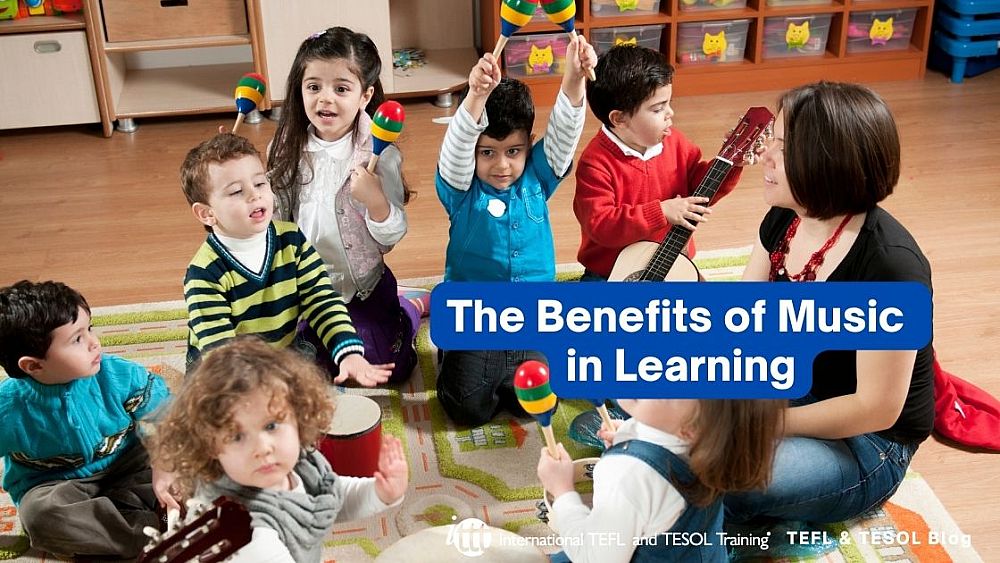The Benefits of Music in Learning

Music has the power to enhance learning experiences. From evoking emotions to fostering connections and improving memory, incorporating music in the classroom brings numerous benefits.
Table of Contents
The Impact on Learning and Memory
Are you ready to teach English as a foreign language?
Check out what our course grads say in our many video testimonials!
Disclaimer: The views and opinions expressed in this blog post are solely those of the author, an alumni of ITTT (International TEFL and TESOL Training). They do not necessarily reflect the views or opinions of ITTT. The content provided in this post is for informational purposes only and should not be considered as official endorsement or representation by ITTT.
The Emotional Impact of Music
Music has the ability to change moods and evoke emotions. By utilizing music to encourage joy, classrooms can cultivate enthusiasm for learning. The dynamic nature of music, with its tones, pitch, and rhythm, engages students in a more interesting and captivating way. Additionally, incorporating physical movements and gestures with music boosts energy levels and amusement, particularly among young children. Music is also known to reduce stress, creating a relaxed and conducive learning environment.
Music as a Universal Language
Music acts as a bridge, connecting people across cultures and languages. It evokes shared emotions that are universally experienced. Regardless of differences in race, country, or culture, music fosters commonality. Recognizing patterns and following musical rules, even subconsciously, builds relationships in an ESL classroom, fostering trust and connection among students and teachers.
The Impact on Learning and Memory
Numerous studies have shown that music positively affects learning and memory retention. Engaging both sides of the brain simultaneously, music improves performance and brain function. It enhances the ability to recall memories by connecting experiences and emotions. Music helps in retrieving old memories while facilitating the formation of new ones. By incorporating patterns, music aligns with our natural cognitive processes, enhancing information retention.
Harnessing the Power of Music
The applications of music in the classroom are extensive. From setting information to song to listening to music while studying, it improves brain function and academic performance. Music has a lasting impact on individuals of all ages, nationalities, and academic abilities. By utilizing music as a tool, educators can enhance the learning experience and create a more enriching and effective educational environment.
Conclusion
Music offers a multitude of benefits and its connection to academics continues to be studied. Its positive impact on emotions, connections, memory, and brain function makes it a valuable resource in the classroom. Music transcends boundaries and enhances learning experiences, benefiting learners of all backgrounds and abilities. Embracing music in education unlocks its vast potential and creates a harmonious path to academic growth.
Are you ready to teach English as a foreign language?
Apply now & get certified to teach english abroad!
Speak with an ITTT advisor today to put together your personal plan for teaching English abroad!
Send us an email or call us toll-free at 1-800-490-0531 to speak with an ITTT advisor today.
Related Articles:
- Top 10 Cities in Europe with the Highest Demand for English Language Teachers
- 5 Reasons To Take A TEFL Course Right Now - Even If You Are Not Leaving Yet | ITTT | TEFL Blog
- All the Documents You Will Need to Teach English Abroad
- The Impact of Positive Motivation on an ESL Classroom
- You're Never Too Old to Change Your Life and Do a TEFL Course | ITTT | TEFL Blog
- Getting Student Placement Right - The Best Desk Arrangements for EFL Students



